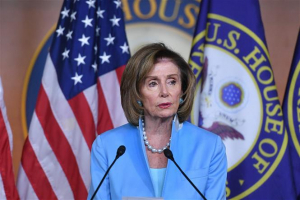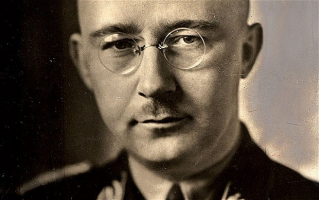Top 6 Interesting Facts about Nancy Reagan
Nancy Reagan, née Anne Frances Robbins, adopted the name Nancy Davis, was the first lady of the United States from 1981 to 1989. But Nancy Reagan is much more ... read more...than that. Here are some interesting facts about Nancy Reagan that you may not be aware of:
-
Opening the topic of interesting facts about Nancy Reagan, The New York Times obituary of Nancy Reagan paints a fascinating portrait of a woman whose main goal in life seemed to be being a good wife and supporting her husband.
However, in Mrs. Reagan's case, "supporting her husband" also included crucial advice on staffing and strategy. "There would have been no Governor Reagan, no President Reagan," said Michael K. Deaver, a longtime Reagan aide and close friend. She was involved in the early stages of Mr. Reagan's successful campaign for governor of California. She wielded considerable power over the staff of her husband's presidential campaigns, first for the Republican nomination in 1976 and then for the presidency in 1980. She recommended, then fired, John P. Sears as Reagan's presidential campaign manager, and had a hand in selecting Sears' replacements — first William J. Casey, then Stuart Spencer, who led the campaign to victory.
Her most important role was most likely in the aftermath of the Iran-Contra scandal. She assisted in the removal of the White House chief of staff, whom she blamed for incompetence during the scandal, and persuaded her husband to apologize to the nation. That speech in March 1987 was credited with turning around Mr. Reagan's low approval ratings.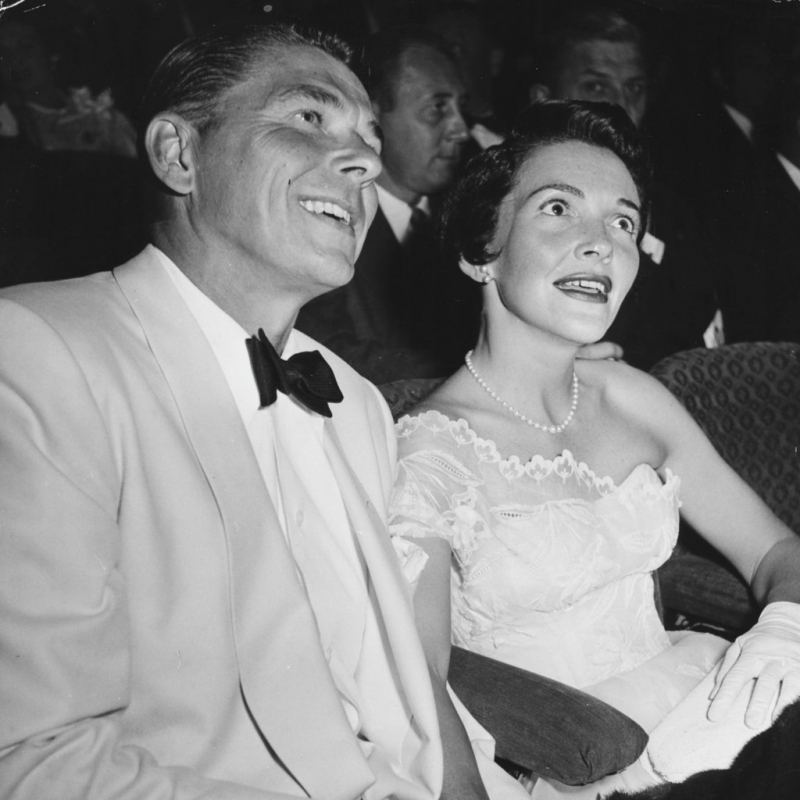
Photo: The New York Times - Nancy Reagan and her husband 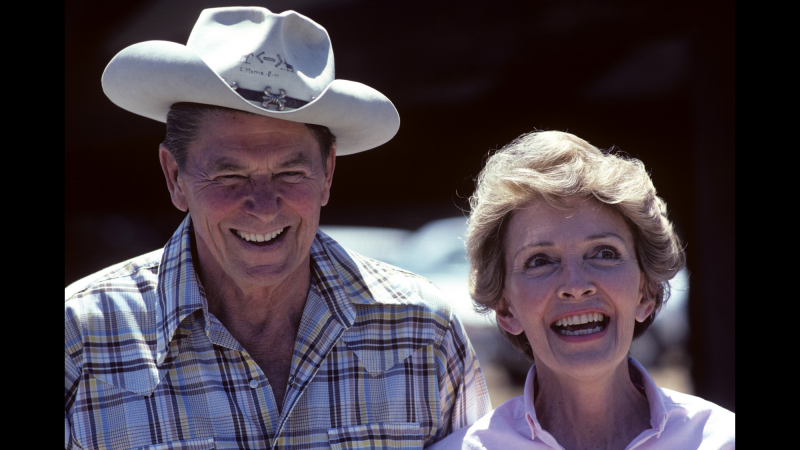
Photo: CNN -
What is less well known is that Nancy Reagan refused to assist Hudson after his publicist pleaded with her to intervene and persuade a French military hospital to treat him. The hospital was thought to have a special treatment that could help, but Hudson, who was in Paris at the time of his collapse, was denied because he did not live in France.
Mrs. Reagan declined the request, presumably because she didn't want the administration to appear to be favoring friends or celebrities. "This is probably not the [last] time we're going to get a request like this, and we want to be fair and not do anything that would appear to favor personal friends," she agreed with White House staffer Mark Weinberg.
Mrs. Reagan appeared shaken by Hudson's death nine weeks later. She worked hard behind the scenes to persuade her husband that he needed to fund AIDS research and do more to address the crisis. Mr. Reagan was notoriously slow to act on AIDS; he initially cut funding for it and only spoke publicly about the crisis in 1987, after thousands had died.
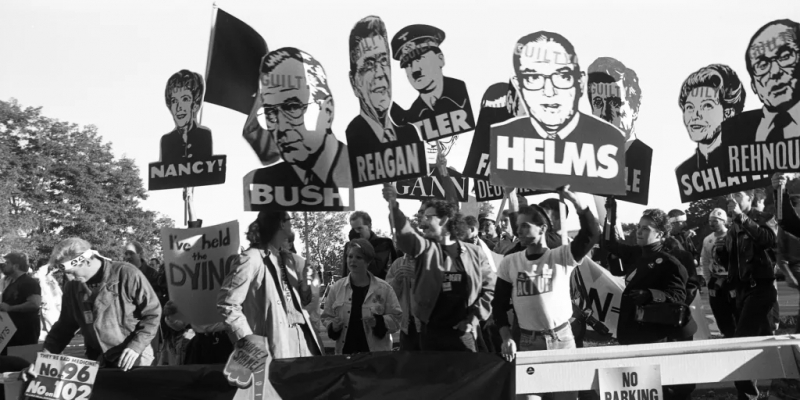
Photo: NBC News - Nancy Reagan and the AIDS crisis 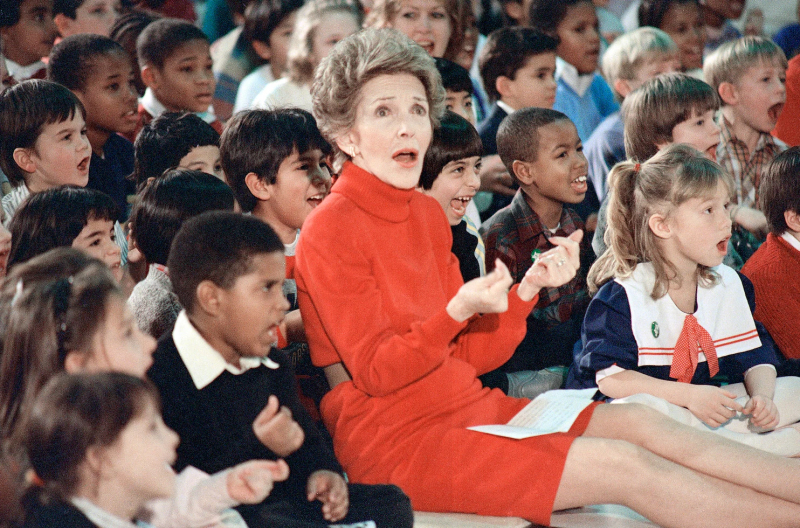
Photo: The Washington Post -
Ronald Reagan was diagnosed with Alzheimer's disease five years after leaving office in 1994. You can read his letter to the American public in which he announced his diagnosis here. It is debatable whether Reagan was affected by the disease during his presidency. A case study published last year discovered that the president's vocabulary shrank during his presidency, a condition often associated with dementia.
'Nancy Reagan took private conversations and threw them out into the public sphere, and in so doing created a tremendous awareness for Alzheimer’s disease that she then leveraged politically.' - Hans Keirstead, a pioneer in stem cell research. Nancy Reagan became an advocate for Alzheimer's research after her husband's diagnosis. Mrs. Reagan was instrumental in establishing the Ronald and Nancy Reagan Research Institute, an Alzheimer's Association affiliate, in 1995.
The New York Times labeled Nancy Reagan a "stealth lobbyist" against the severe restrictions President George W. Bush imposed on stem cell research the previous year in 2002, years after Ronald Reagan's illness forced him out of public life. These were overturned by President Obama shortly after taking office, a decision Republicans strongly opposed but Reagan praised.
NPR spoke with stem cell pioneer Hans Keirstead about Nancy Reagan's stem cells heterodoxy within the conservative movement: "Nancy used the power of her position, you know, unapologetically, very responsibly to not only bring awareness to Alzheimer's research but also awareness to the tools that might benefit Alzheimer's," Keirstead said. "There was a lot of ignorance about where these cells came from, how they were procured, how they were used. She brought clarity to that by using her position, influencing senators, congressmen, politicians of all sorts as well as the federal government's funding agencies like the National Institutes of Health."
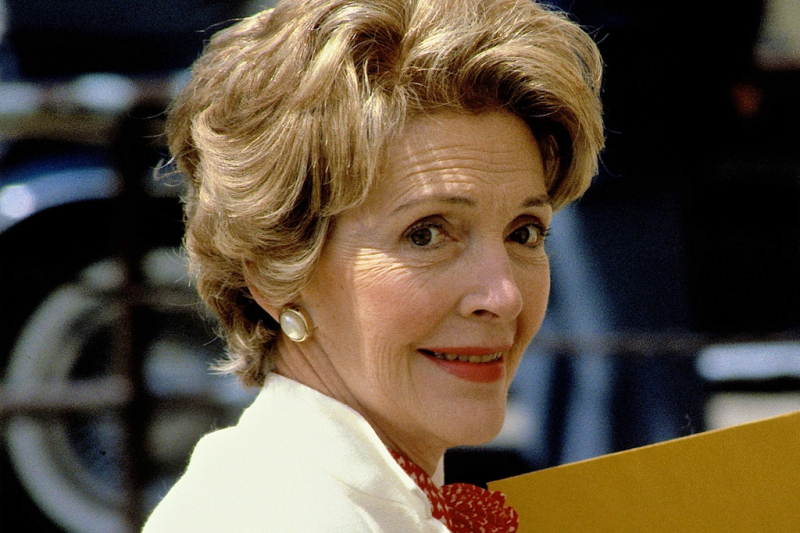
Photo: WWD 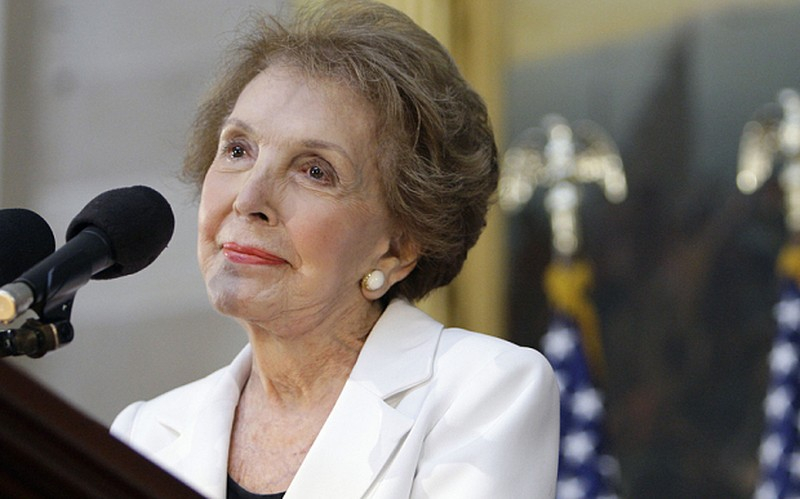
Photo: The Advocate -
She moved to California after passing a screen test and signing a seven-year contract with Metro-Goldwyn-Mayer Studios Inc. (MGM) in 1949. "Joining Metro was like walking into a dream world," she later remarked. Her attractive appearance—centered on her large eyes—and somewhat distant and understated demeanor made her difficult to cast and publicize at first. Nancy Reagan appeared in eleven feature films, most of which starred her as a "loyal housewife," "responsible young mother," or "steady woman." Jane Powell, Debbie Reynolds, Leslie Caron, and Janet Leigh were among the actresses she competed with for MGM roles.
Nancy's film career began in 1949 with small supporting roles in two films, The Doctor and the Girl starring Glenn Ford, and East Side, West Side starring Barbara Stanwyck. In the film Shadow on the Wall (1950), she played a child psychiatrist alongside Ann Sothern and Zachary Scott. New York Times critic A. H. Weiler praised her performance as "beautiful and convincing." She co-starred in the 1950s film The Next Voice You Hear... as a pregnant housewife who hears God's voice through her radio.
The New York Times' influential reviewer Bosley Crowther wrote, "Nancy Davis is delightful as a gentle, plain, and understanding wife." Davis made her screen debut in Night into Morning, a bereavement drama starring Ray Milland, in 1951. Davis "does nicely as the fiancée who is widowed herself and knows the loneliness of grief," according to Crowther, while Davis "is splendid as the understanding widow," according to The Washington Post's Richard L. Coe. MGM released Davis from her contract in 1952, and she sought a broader range of parts while also marrying Reagan and having her first child that year. Soon after, she appeared in the science fiction film Donovan's Brain (1953). Crowther stated that Davis, who played the "sadly baffled wife" of a possessed scientist, "walked through it all in stark confusion" in an "utterly silly" film. Hellcats of the Navy (1957), her next-to-last film, she played nurse Lieutenant Helen Blair and appeared in a film with her husband for the first time, playing what one critic described as "a housewife who came along for the ride." However, another reviewer stated that Davis plays her part well and "does well with what she has to work with."
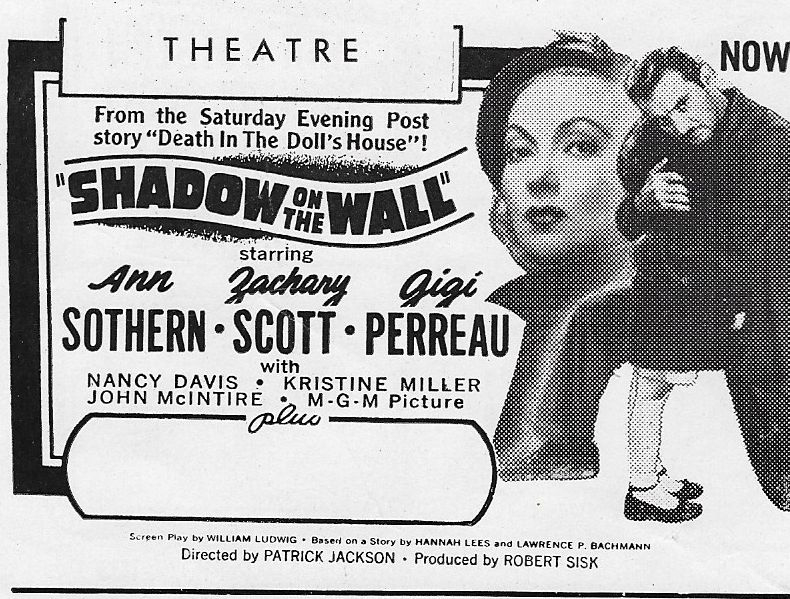
Photo: IMDb - Shadow on the Wall (1950) 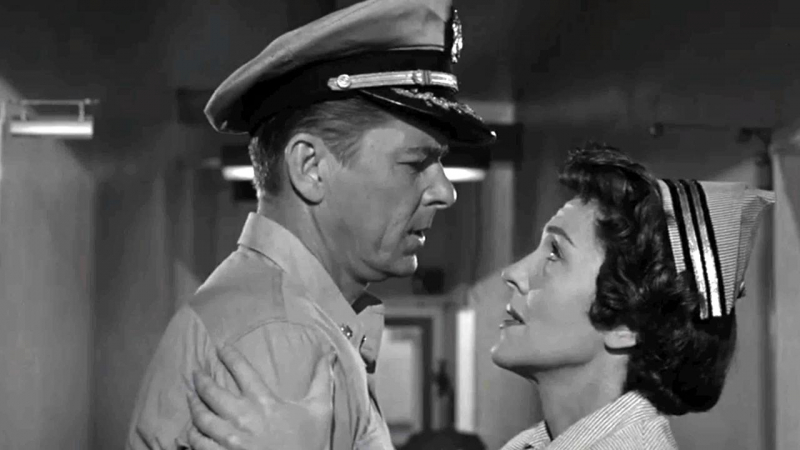
Photo: IMDb - Hellcats of the Navy (1957)-a film for the only time with her husband -
You may not know, one of the interesting facts about Nancy Reagan. Nancy Davis Reagan was born in New York City on July 6, 1921, as the only child of Kenneth Seymour Robbins and Edith Prescott Luckett. Her parents separated shortly after her birth. After their divorce, Edith pursued her acting career and eventually placed Nancy, her two-year-old daughter, in the care of her sister and brother-in-law, Virginia and Audley Gailbraith in Bethesda, Maryland. Nancy spent the next six years with the Gailbraiths.
Edith Luckett remarried in 1929 to Loyal Edward Davis, a prominent Chicago, Illinois neurosurgeon. Nancy and her mother reunited in Chicago, where she went to school and grew into a young woman. Dr. Davis, who died on August 19, 1982, was Professor Emeritus at Northwestern University after more than 30 years as Professor of Surgery there. Edith Luckett Davis went on to work for a number of charitable organizations. Davis's retirement home in Phoenix, Arizona, was where she died on October 26, 1987.
Nancy Reagan had a close relationship with her stepfather and regarded him as her father. Nancy was formally adopted by Loyal Davis when she was a teenager. At this point, Anne Francis Robbins legally changed her name to Nancy Davis.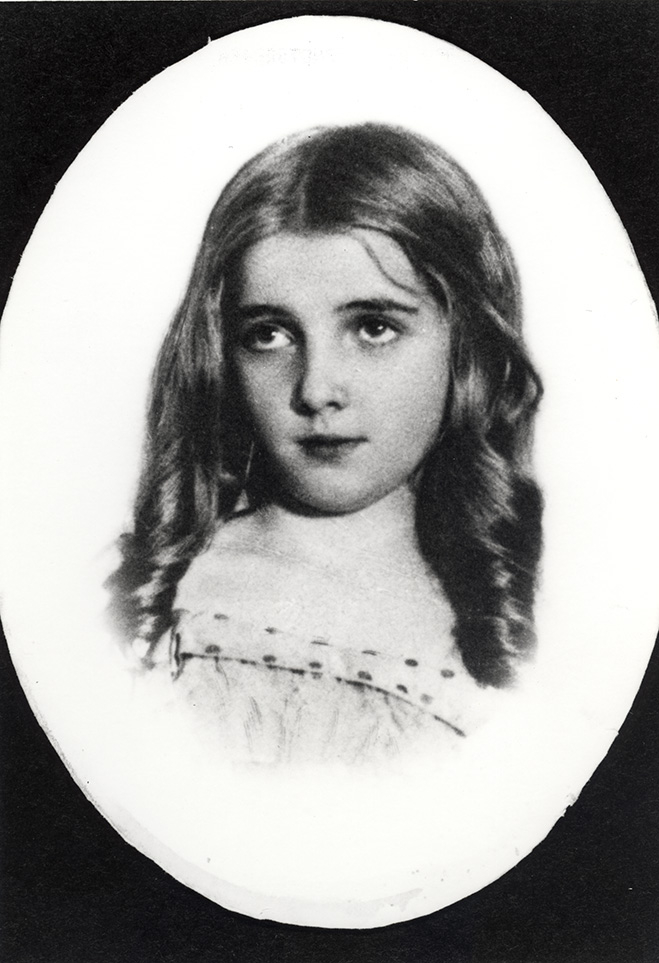
Photo: Reagan Library - Nancy Davis 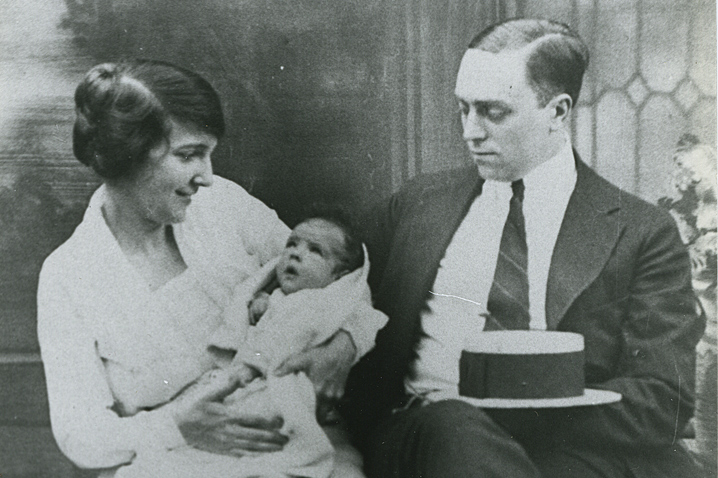
Photo: PBS - Nancy Reagan's parents -
Reagan will be remembered for many things, including her acting career, the "Just Say No" campaign, and her political savvy behind the scenes. But she was also responsible for one of the strangest episodes in White House history: the use of an astrologer to make scheduling decisions for the president while he was still in office.
Ronald Reagan was inaugurated at 12:10 a.m. in 1967, after being elected governor of California. According to the LA Times, the outgoing governor Pat Brown and many L.A. astrologers believed it was for astrological reasons. (Reagan rejected the idea, saying he didn't want to miss a football game, and then rescheduled the swearing-in to a more traditional 12:01 a.m.)In response to Regan's book, astrology became more publicly Nancy Reagan's domain. Following its publication, numerous (albeit anonymous) staffers provided examples of astrological influence on the presidency. According to one former aide, President Reagan timed his re-election campaign announcement to coincide with favorable astrology, for example. According to Ted Koppel, an astrologer warned Nancy Reagan that there would be "an incident" on March 30, 1981, the day her husband was shot.
When asked about astrology, President Reagan deflected the question to his wife, claiming that her meeting with an astrologer following his assassination attempt could be explained by the upsetting nature of the event itself, "a trauma that didn't go away easily." The astrologer in question was a San Francisco socialite named Joan Quigley, whom Nancy Reagan began calling after the 1981 shooting, according to a 1988 People magazine story. The friendship would last the duration of her husband's two terms in the White House. Prior to Donald Regan's revelations, the Vassar-educated seer acted with the discretion that any country club Republican would.
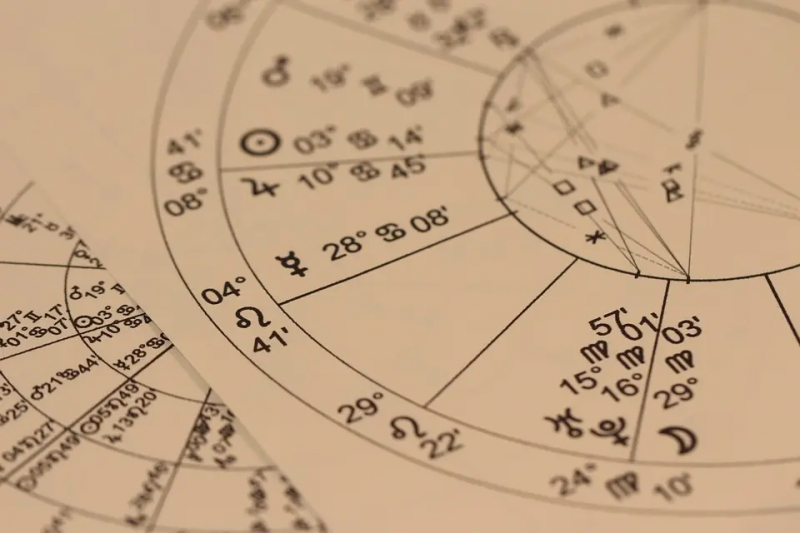
Photo: Patch - Nancy Reagan Used Astrology For Husband's Schedule 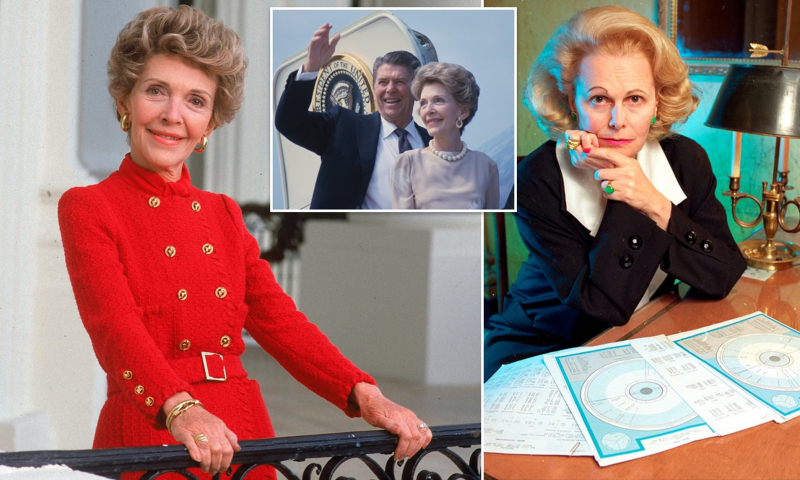
Photo: Daily Mail - Nancy Reagan tried to cover up her use of the clairvoyant who dictated White House policy








